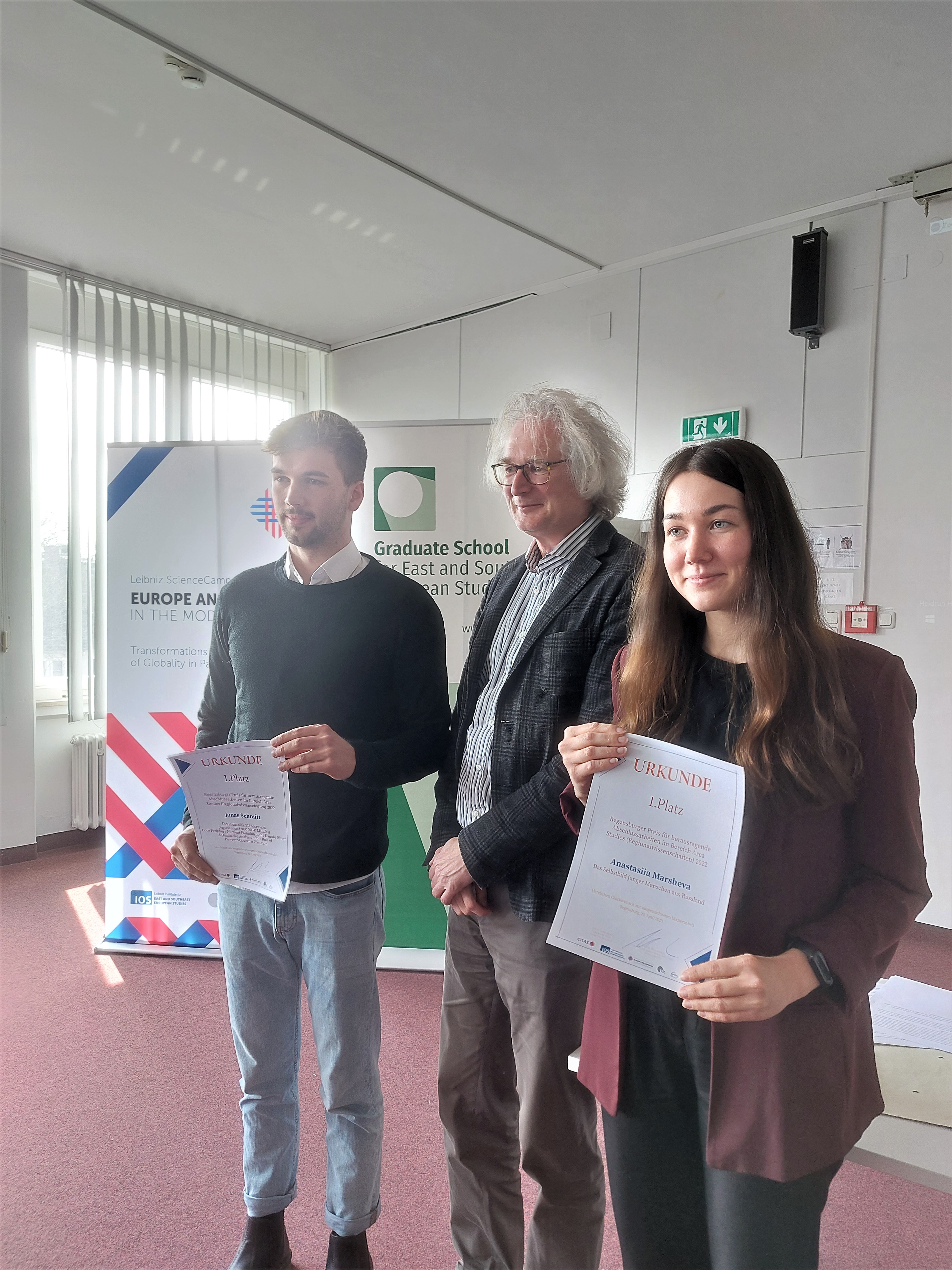Award of the 2022 Regensburg Prize for Outstanding Master’s Theses in Area Studies
The first prize for 2022 was awarded jointly to Anastasiia Marsheva and Jonas Schmitt
The Center for International and Transnational Area Studies (CITAS) at the University of Regensburg and the Leibniz ScienceCampus Europe and America in the Modern World have announced the winners of the 2022 Regensburg Prize for Outstanding Master’s Theses in Area Studies. First awarded in 2020, this third edition highlights the significance of area studies research and teaching in Regensburg. The focus on this field is also evident in the newly founded Department for Interdisciplinary and Multiscalar Area Studies (DIMAS) at UR in 2023.
Two equal first prizes of 400 Euro in the 2022 edition went to two talented students:
East-West Studies graduate Anastasiia Marsheva, received the prize for her study "Das Selbstbild junger Menschen aus Russland” (The Self-Image of Young People from Russia), in which she conducted an extensive qualitative cultural anthropological study. She dealt with the question of how long-lasting anti-East European discourses and stereotypes influence the self-image of young Russians living in Russia and Germany from an anti- and postcolonial perspective. The work was particularly distinguished by the detailed, careful presentation of the results and its theoretical framing. Marsheva was supervised by Anne Brüske (Professor of Spatial Dimensions of Cultural Processes at DIMAS) and Ger Duijzings (Professor of Social Anthropology).
Jonas Schmitt was received his prize for his final paper “Did Romania’s EU Accession Negotiations (2000–2004) Manifest Core-Periphery Nutrient Pollution in the Danube River? A Qualitative Analysis of the Role of Power to Govern a Common.” By analysing water-related documents of the EU environmental legislation while also using semi-structured qualitative interviews with governmental and non-governmental policy experts, Schmitt obtained data on complex environmental problems concerning water pollution, using the example of the two outermost Danube states: Germany and Romania. He investigated the extent to which German-Romanian power imbalances create and reinforce unjust structures of pollution management in the Danube basin. As a political, economic and ecological study, the work stood out for its multi-perspectivity. Jonas Schmitt was supervised by Rainer Liedtke (Chair of European History - 19th and 20th Century).
The award ceremony took place on 20 April 2023 as part of the joint research colloquium of the Leibniz ScienceCampus and the Graduate School for Eastern and South East European Studies (GS OSES, UR), as well as the welcoming event of the new cohort of the Graduate School. The call for applications to the next edition of the prize will be published in summer 2023. Two winners of the prize in the inaugural edition, Jana Stöxen and Melanie Hussinger, have published aspects of their master’s thesis in contributions to the ScienceCampus’ blog-journal Frictions.
A German version of this press release can be found here.

